How Plumbing Leaks Can Attract Rodents and Pests
Rodents and pests need water to survive much like we do. If you have a water leak in your plumbing lines or a leaky faucet that leaves water in the sink or tub all of the time, you are essentially rolling out a “welcome mat” for all the rodents and pests near your home. To prevent rodent and pest problems in your home, you need to do occasional leak checks. If you find one, call our 24-hour plumbing service to get it fixed promptly.
What Types of Pests Can Water Leaks Attract?
Rodents are one type of pest water leaks attract. Rodents are a broad category used for a variety of furry animals, including:
- Mice
- Rats
- Chipmunks
- Squirrels
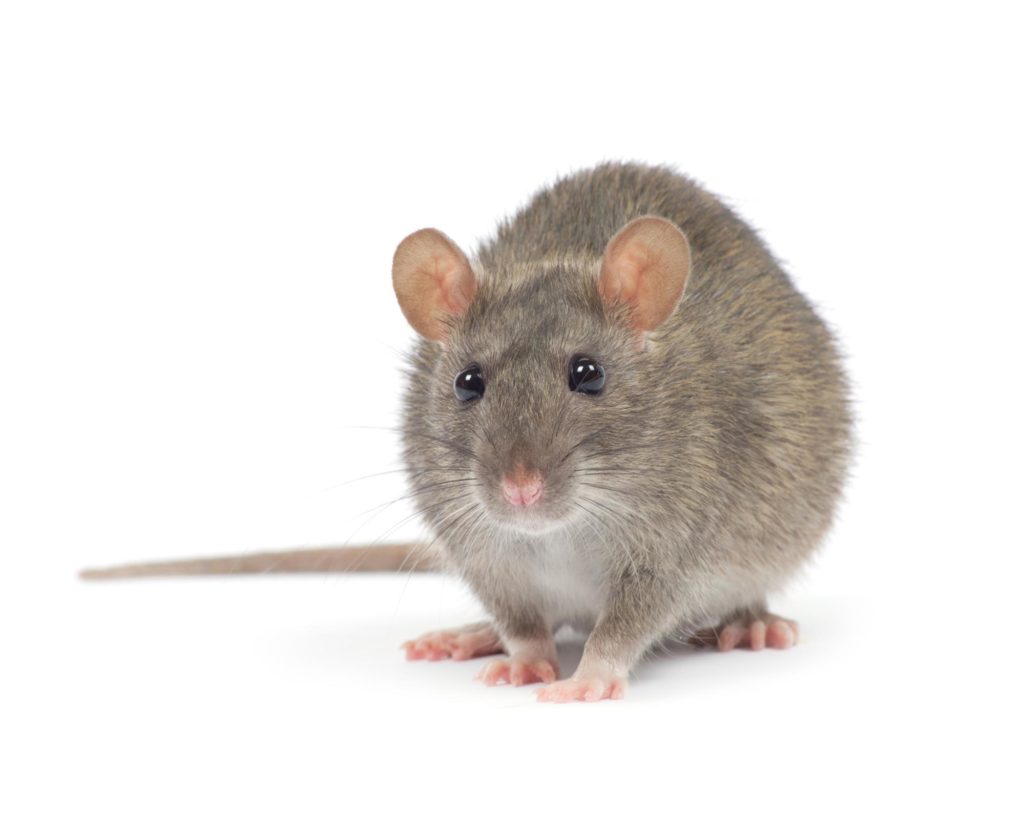
Rodents will look for water leaks under crawl spaces, as this will provide a steady source of water. They will also drink water dripping from outdoor spigots. Some of these rodents can also climb. So, if your eaves and gutters are clogged up with leaves and there is standing water, that will attract rodents, too.
Two other small mammals that could be attracted to your leaks are:
- Raccoons
- Possums
These are in the carnivora and marsupial classes, respectively, but if they are in your house you will probably just call them nuisances.
Insects and arachnids are the other types of pests that water leaks can attract. Some of the more common insects and arachnids you might notice in your home include:
- Cockroaches
- Termites
- Carpenter Ants
- Powderpost Beetles
- Mosquitoes
- Fire Ants
- Black Ants
- Red Ants
- Spiders
- Scorpions
- Silverfish
- Booklice
Unlike rodents, noticing various insects and arachnids are invading your home can be problematic, as you may not notice signs of an infestation right away, allowing them to build their colonies or homes undetected and right under your nose.
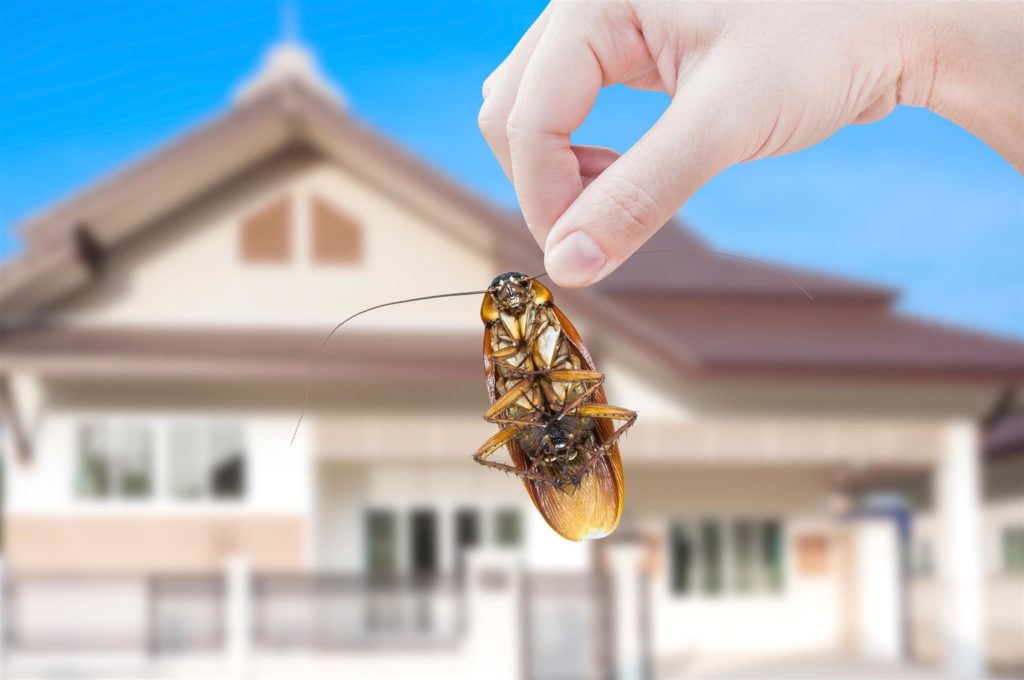
- TIP: If you notice an increase in rodent or insect activity inside or around your home, this is often a good indication there is a water leak somewhere nearby.
What Types of Damages Can Pests and Water Leaks Do to My Home?
Water leaks are bad if they are in plumbing lines in the subflooring, walls, or underneath sink cabinets. As the water slowly drips out from the source of the leak, over time it wets the wood, insulation, laminate, concrete, and other such materials used to build your home.
With the passing of time, and thanks to the warm and humid conditions we have here in Texas, mold and mildew will start to grow and form near the water leak. Not to mention, the wood will start to soften and rot and, eventually, the water will become so excessive, it can start to soak into the backside of drywall.
Ultimately, the drywall will give out, and you could end up with water running out of the wall or from your ceiling into your home. If the water is leaking under your shower, tub, or toilet, it is not uncommon for the floor to become spongy and then give way. In addition to the water running out, you may find your shower, tub, or toilet falling through the floor! Not while occupied, one hopes.
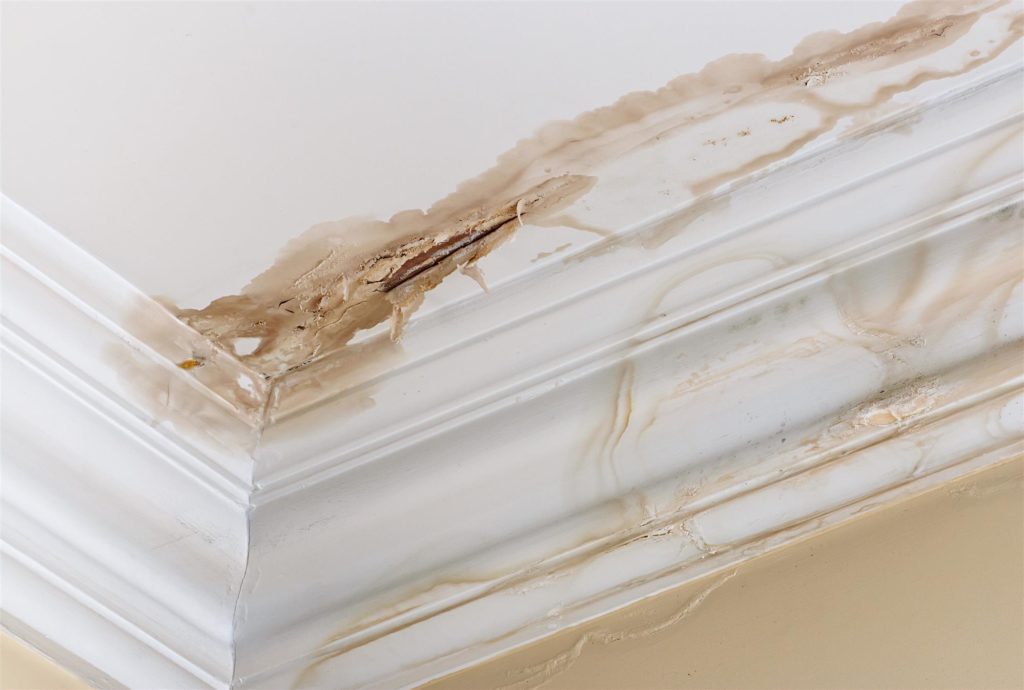
This is just the damage from the water leak itself, not any damage caused by pests. With pests, the extent of damage depends on the type of pests that invade the home. Let’s take a look at some of the types of damage pests can cause inside your home when you have a water leak.
Rodents and Other Small Mammals
Rodents and other small animals love to find places where they can feel safe and secure. They build nests to mate and have babies. The insulation inside your walls or attic makes a great material and location where they can mate, have babies, and build families. They also love chewing on wood, PVC and plastic-type plumbing, electrical wires, and even concrete.
If they have access to a source of water inside your home, they could easily move in for the long haul. Plus, if you have pets and leave pet food out, it’s a double win for the rodents since they also will have easy access to a source of food.
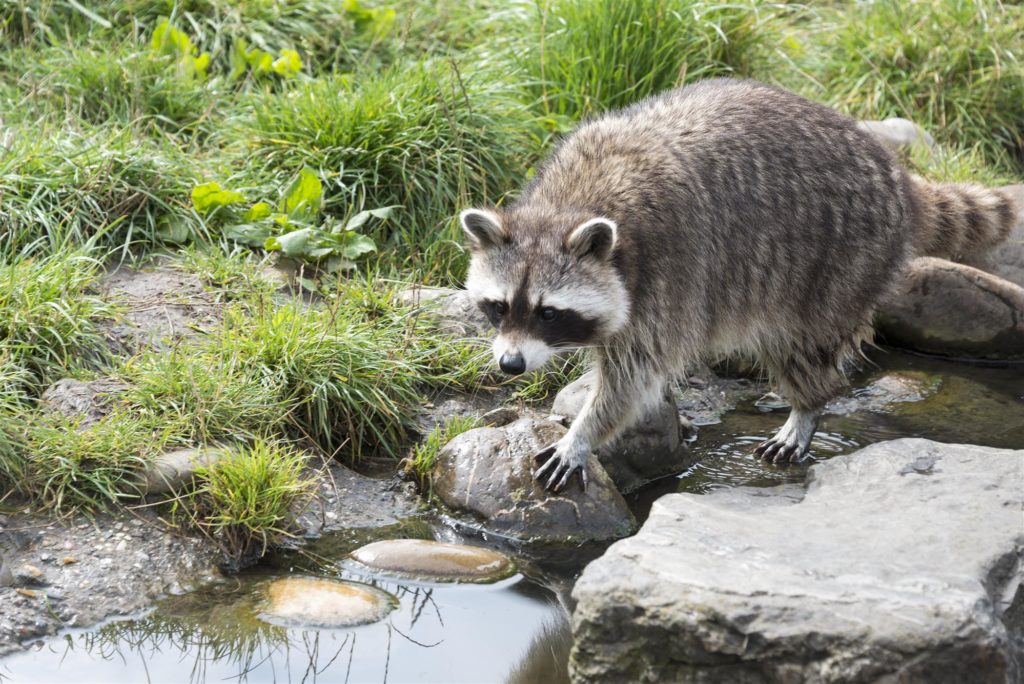
Another concern with rodents is they carry various illnesses and diseases that can affect both humans and your pets. Some even carry the rabies virus, so, if you are bitten or scratched, you could be looking at a long series of shots.
Wood-Destroying Pests
Termites, carpenter ants, and powderpost beetles love destroying rotting wood. If you have a water leak, the wood in your home starts to rot. These pests like hiding in the dark, away from prying eyes. However, you might get lucky and notice a carpenter ant or powder post beetle inside your home.
If you do, then you probably want to check for water leaks. Termites are harder to spot and tend to avoid light as much as possible. Some signs of termites you might notice around the home could include:
- Small mud-like tubes on the sides of your home.
- Paint that is peeling or bubbling up on the ceilings or walls.
- Soft spots on hardwood or laminate flooring.
- Small pin-sized holes in cabinets or drywall.
- A sawdust-like powder along the baseboards.
You will want to get your home treated for the wood-destroying pests and repair any damages they caused. Part of your repairs should include having a qualified plumber fix the water leak.
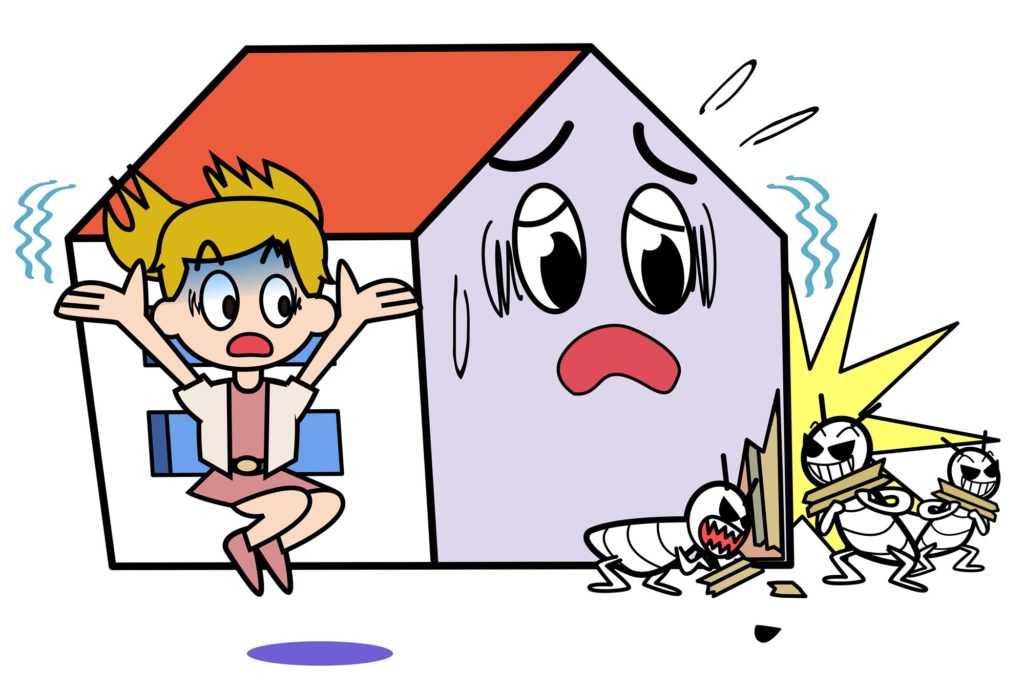
Mosquitoes
Standing water provides an ideal area for mosquitoes to breed and lay eggs. If your eaves and gutters are clogged up or there is a puddle of water under the house from a water leak, mosquitoes will become a problem around your home. If you notice an increase in these pests, start looking for sources of standing water nearby.
Cockroaches
Cockroaches can live for several weeks without food, but they do need water more often. Other than being an annoyance, they can carry bacteria and diseases, which they spread around the home. Not to mention, they can fit into rather small spaces, so they could get inside electronics or appliances, where they can lay eggs.
Spiders, Ants, Scorpions, Silverfish
These creepy crawlies can be annoying if their numbers start to grow inside your home. With certain species of spiders and scorpions, you do have to be careful, as their bite could be painful, much like being stung by a bee or wasp. When it comes to ants, red and black ants tend to not bite humans. However, fire ants will, and the bites can be unpleasant and painful.
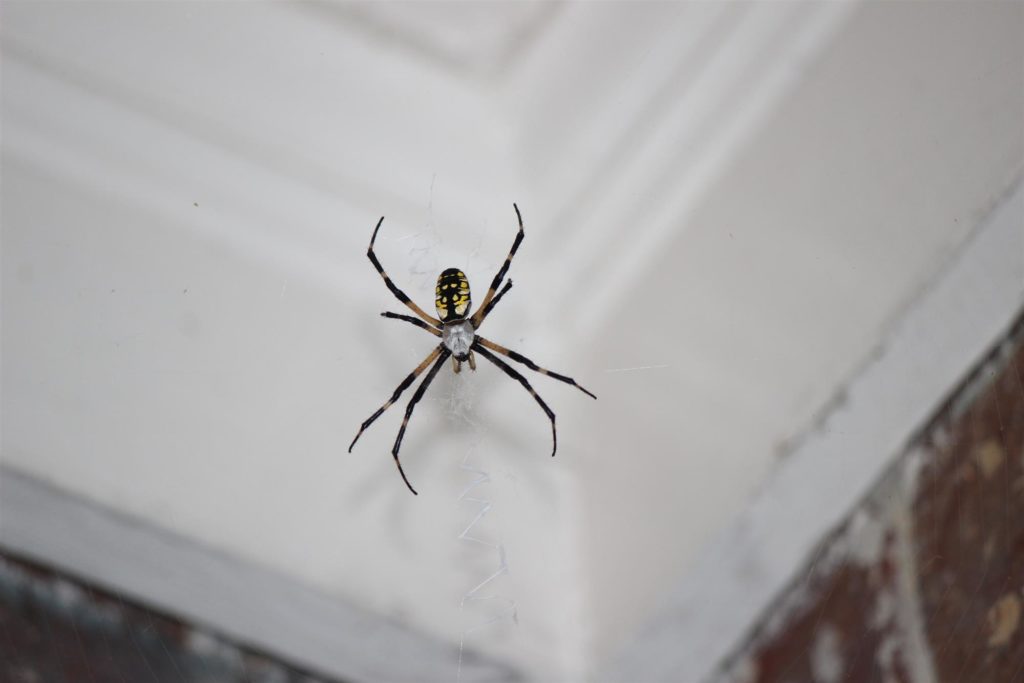
Booklice
Booklice are not actual lice, being in the order psocids, but they are about the same size. They eat mold and mildew growing in your home. If you have a water leak, they will multiply quickly because water promotes the growth of mold and mildew.
Checking for Signs of Water Leaks in the Home
There are several areas of the home you can check on your own to see if you might have a water leak that could attract pests:
- Check all faucets for slow dripping leaks. If a sink, tub, or shower faucet is leaking, it will leave water in the bottom that will attract pests. Fixing this type of leak is very easy, as the hardware inside the faucet often needs to be replaced and, when that is not possible, a new fixture should be installed.
- Look under sinks for signs of leaks and drips. Discolored stains on items under the sink or on the base of the cabinet indicate an occasional or slow leak. If you notice standing water, then you have a bigger leak problem. Another indication of under-cabinet leaks would be if the baseboard is warped, curved, or the base has soft spots in it.
- Look under and behind appliances that use water. Your washing machine, ice maker, dishwasher, refrigerator, or other water-using appliances can develop leaks over time. The washers that connect plumbing lines and prevent leaks can wear out and no longer seal correctly. Water lines can also get damaged if your water pressure in the home is too high.

- Check your basement or crawl space. Look for areas of wetness or standing water. If you have a sump pump in your home in the basement or crawl space, check to make sure it is properly covered so any standing water does not attract pests.
- Check outdoor spigots and make sure they turn on and off correctly. These faucets can wear out and develop slow leaks when washers do not shut correctly.
- Clean your eaves and gutters to prevent clogs. Remove leaves and debris from the eaves and gutters to prevent standing water.
- Check around the hot water heater. Water should not drip out of the hot water heater. Nor should there be any standing water underneath it.
If you discover any type of water leak, it is important to get it repaired as soon as possible to avoid costly repairs and pest problems.
- TIP: If you notice your water bill increases from one month to the next and your water usage has stayed the same, it could indicate you have a water leak somewhere in your home.
For help finding water leaks in your home, more tips on how to check for water leaks, or to schedule a water leak inspection or plumbing repairs for your home, please feel free to contact your nearest Christianson Air Conditioning and Plumbing location in Austin, Temple, San Antonio, or New Braunfels today!



Sorry, comments for this entry are closed at this time.